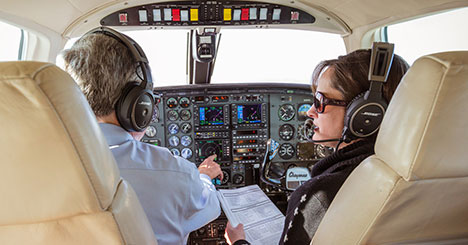
Sept. 6, 2017
In a recent revision to FAA Policy Letter 98 (PL-98) – which provides standardized MMEL relief to operators with out-of-currency navigation databases (NDBs) – the agency determined that expired databases do not meet the definition of “inoperative” equipment, and are not authorized for MMEL relief per 14 CFR.
“PL-98 Rev 0 provided standardized MMEL relief for out-of-currency navigation databases, but PL-98 Rev 1 prohibits MMEL relief for expired NDBs and instead provides relief only for inoperative NDBs,” said Tom Atzert, president of Leading Edge ATS and co-chair of the MMEL Industry Group (IG).
“FAA Notice N8900.424 requires operators to revise their MELs in accordance with PL-98, Rev 1 within 180 days, and stipulates that all aircraft MMELs must be revised in accordance with PL-98, Rev 1 within two years,” explained Atzert. N8900.424 does, however, allow operators to develop alternative procedures for dispatch with expired NDBs by making them part of another operational manual. This must be done in conjunction with operator MEL revisions to ensure a methodology for dispatching aircraft with expired NDBs is still available. View the notice (PDF).
It is common for business aircraft to make extended trips to remote locations where there are no maintenance facilities or internet access. Keeping navigation databases current under these circumstances can be challenging.
“It is a misconception that the new policy prohibits flying with an expired database,” said Brian Koester, NBAA manager of operations. “In fact, InFO 17007 explains that operators can continue to compare the installed navigation database to current charts for the route of flight, just like they were doing under the old MEL procedures. The difference now is that this procedure needs to be moved to the general operations manual, aircraft flight manual, quick reference handbook, pilot operating handbook or flight operations manual. Each operator can work with their principal operations inspector to decide where it fits best.”
Operators must have their manual and MEL revisions approved at the same time. Because of the large workload this places on FAA inspectors, NBAA and the MMEL IG) are concerned that 180 days may not be long enough for every operator to receive approval. In order to ease the burden on inspectors, the MMEL IG has requested that the deadline for operators be extended to match the 24-month deadline for MMEL revisions.


 International Business Aviation Council Ltd.
International Business Aviation Council Ltd.